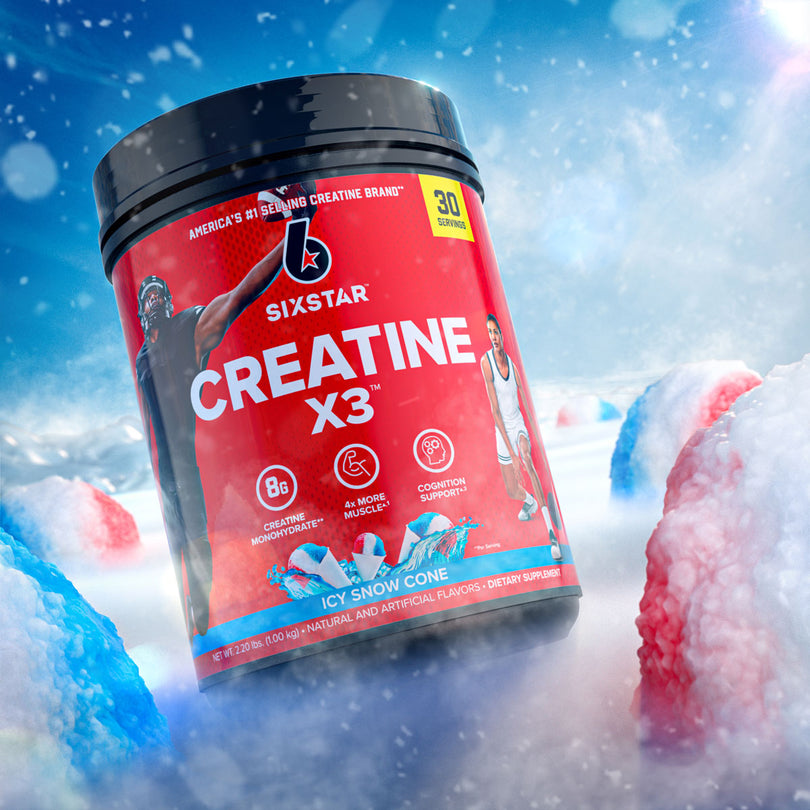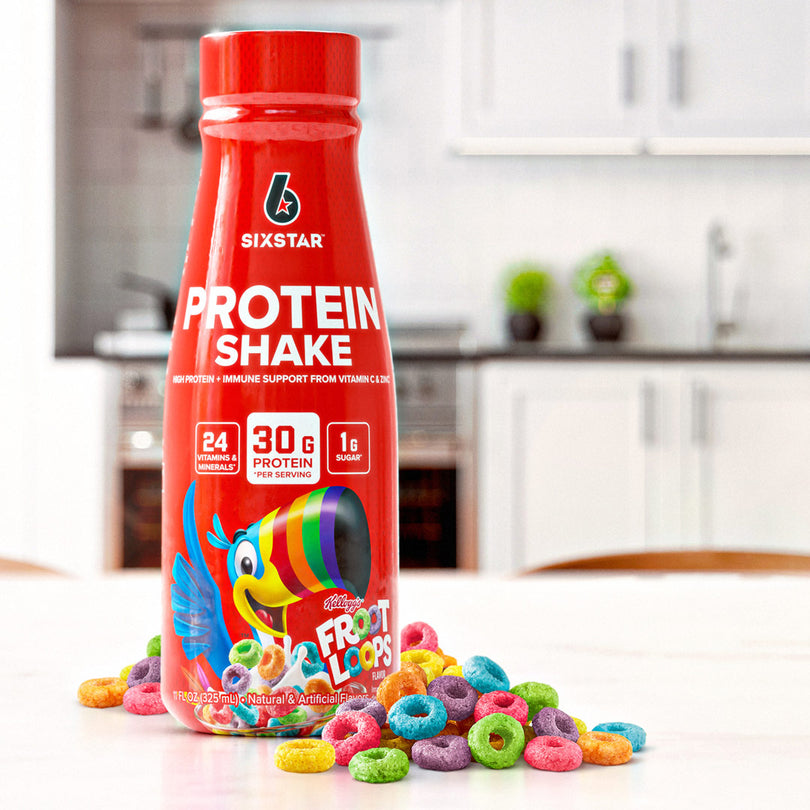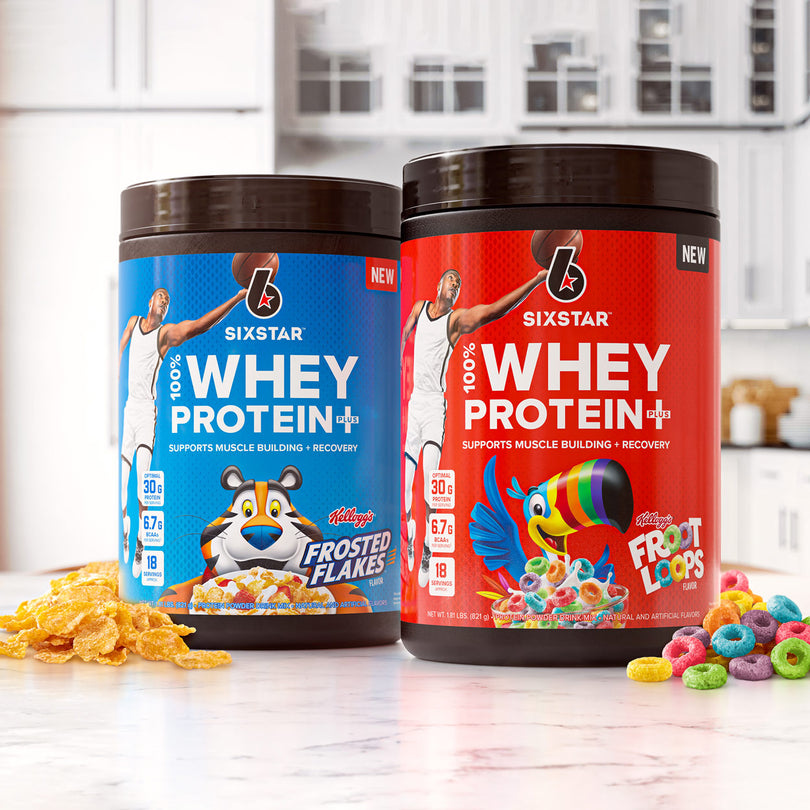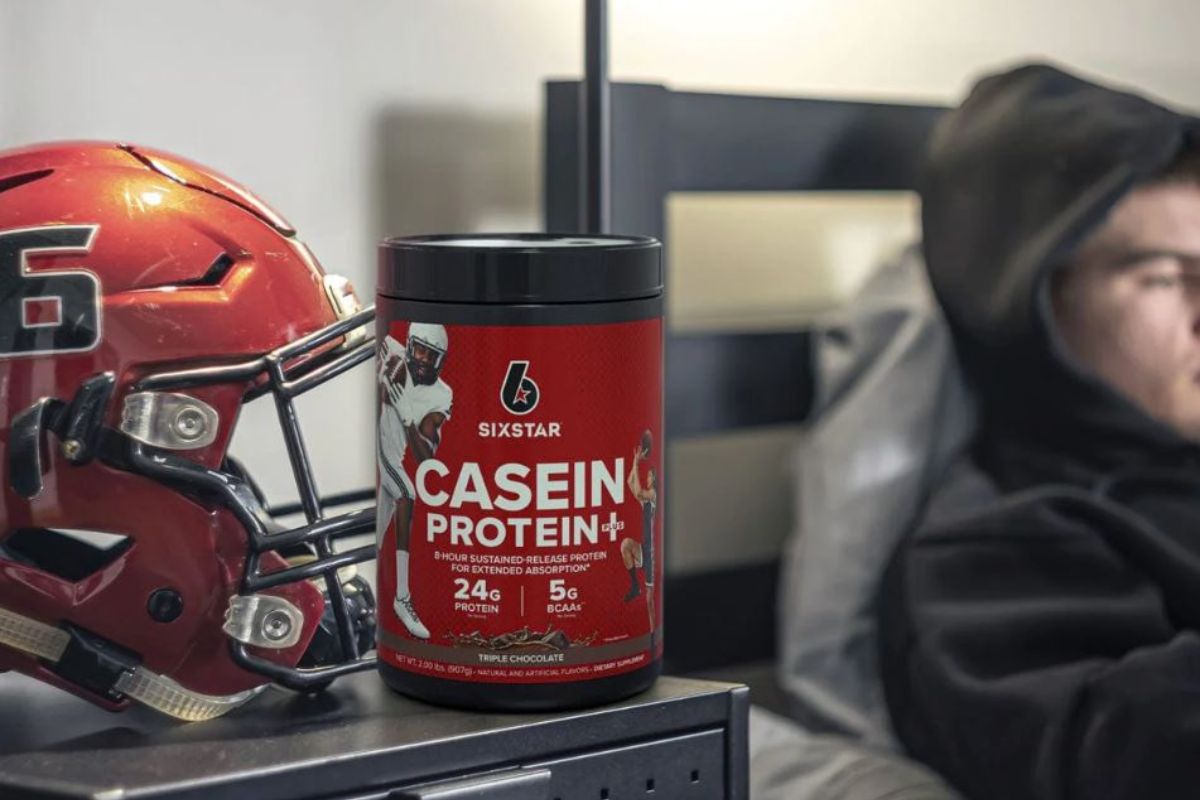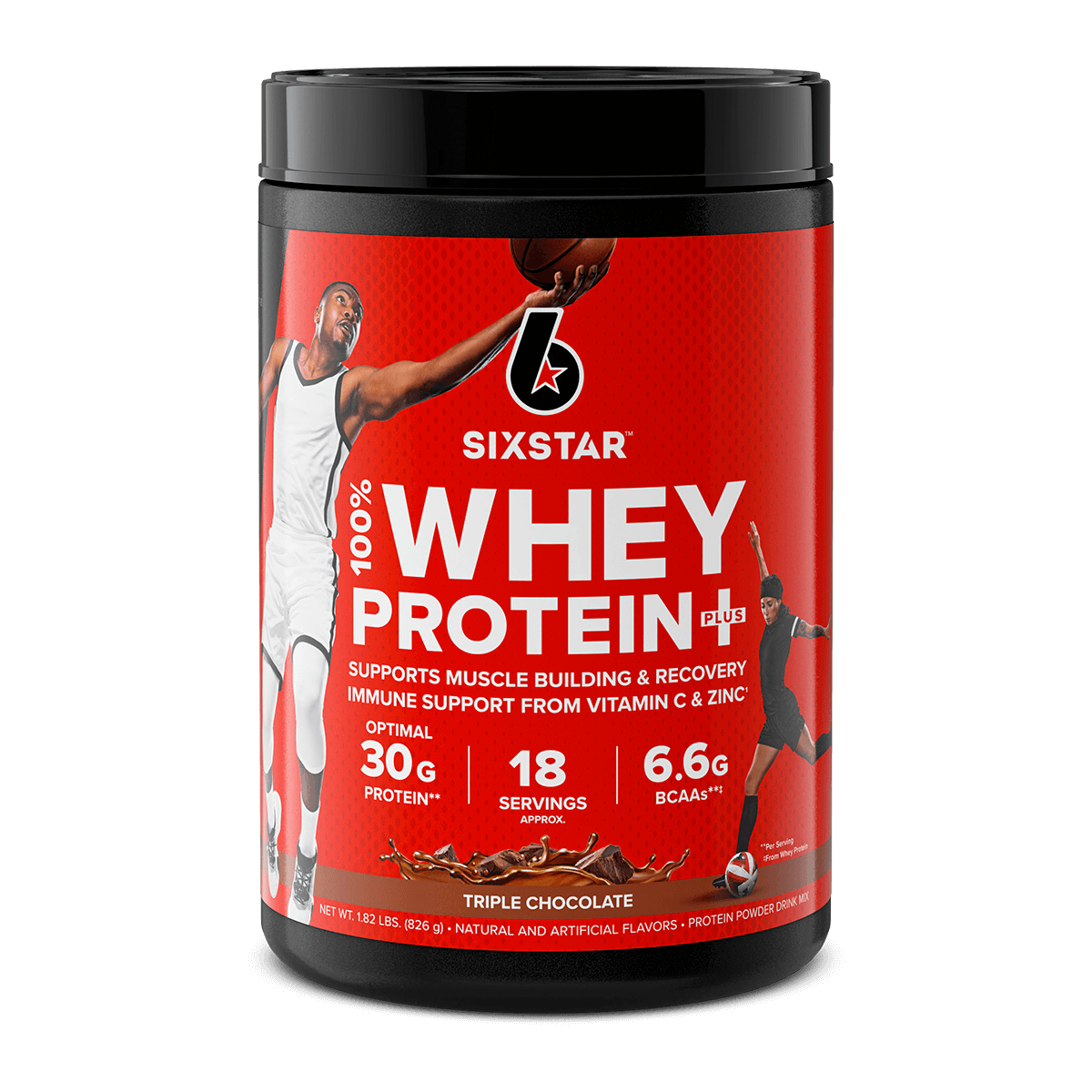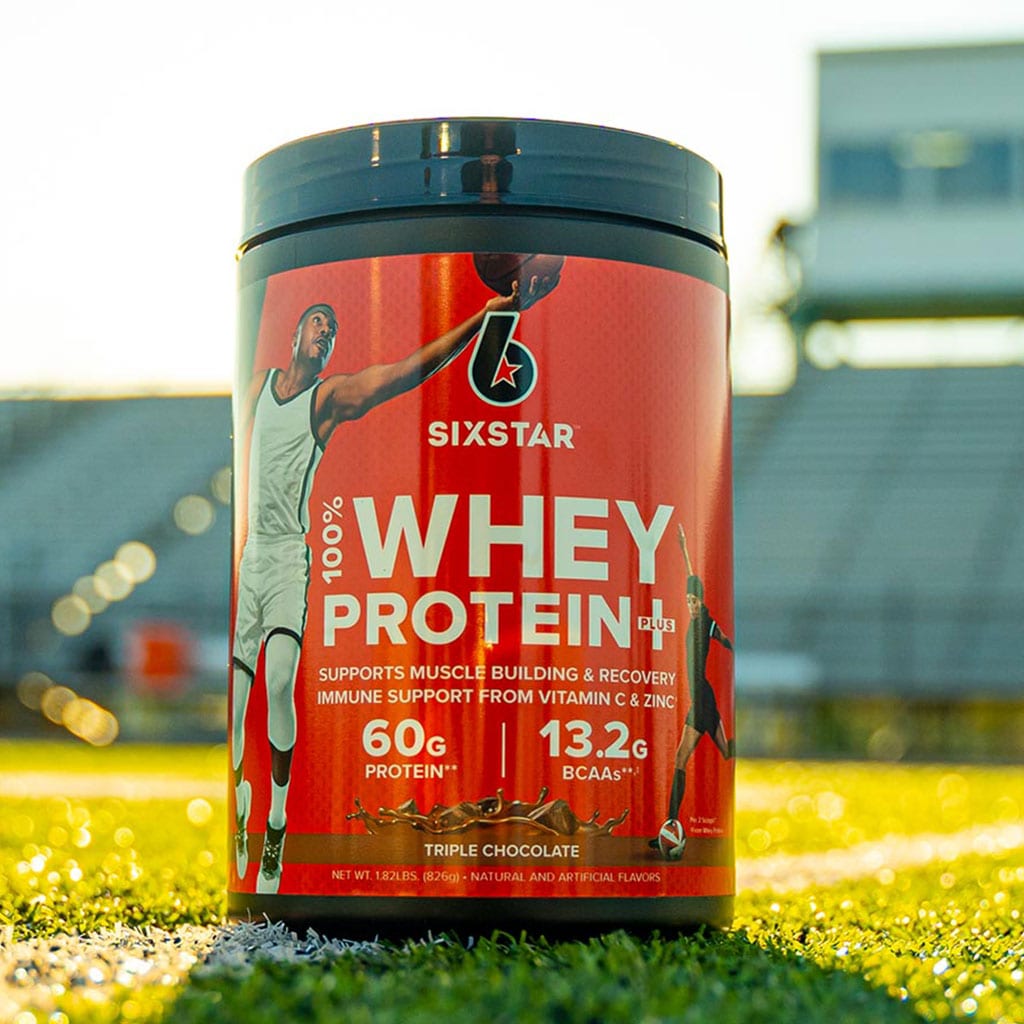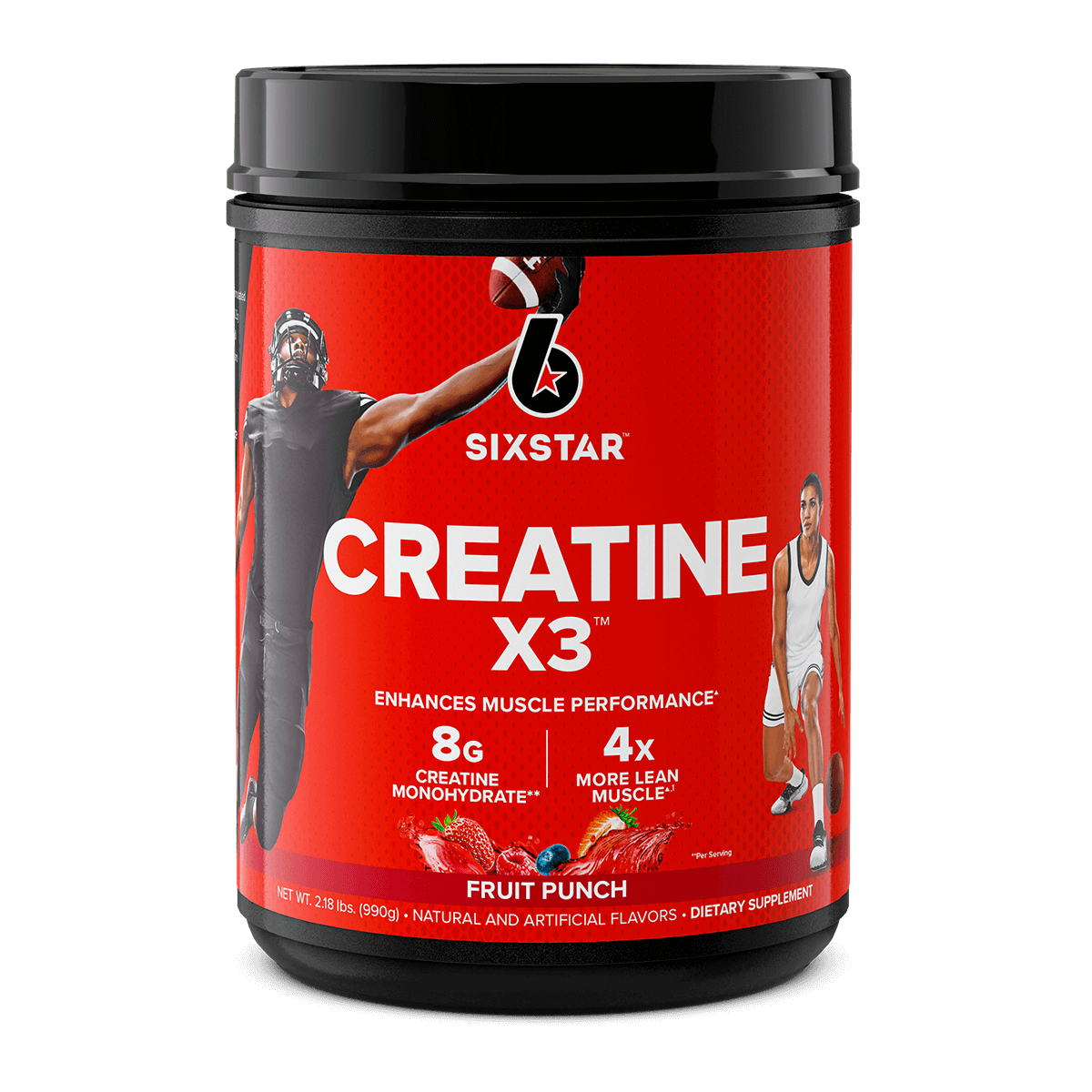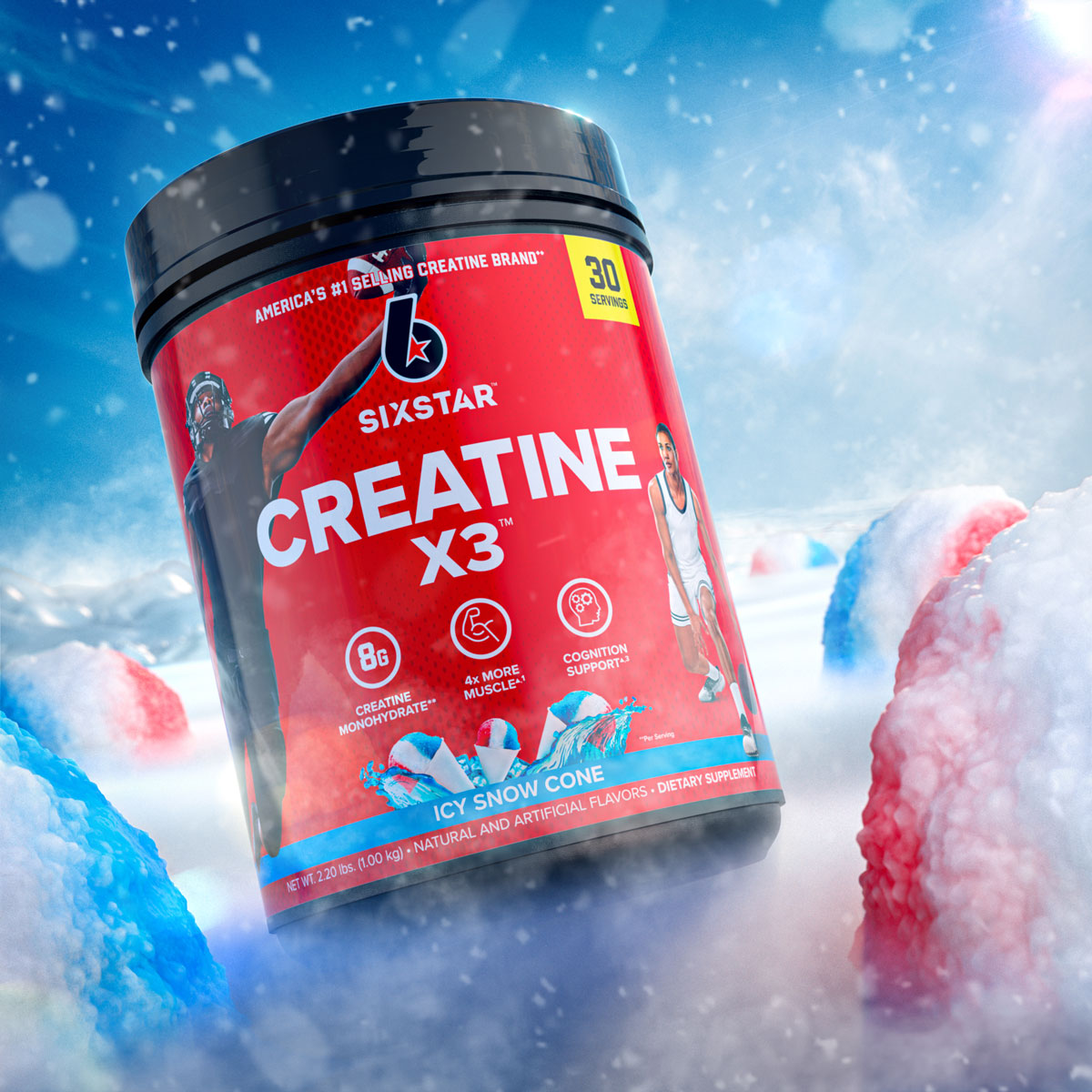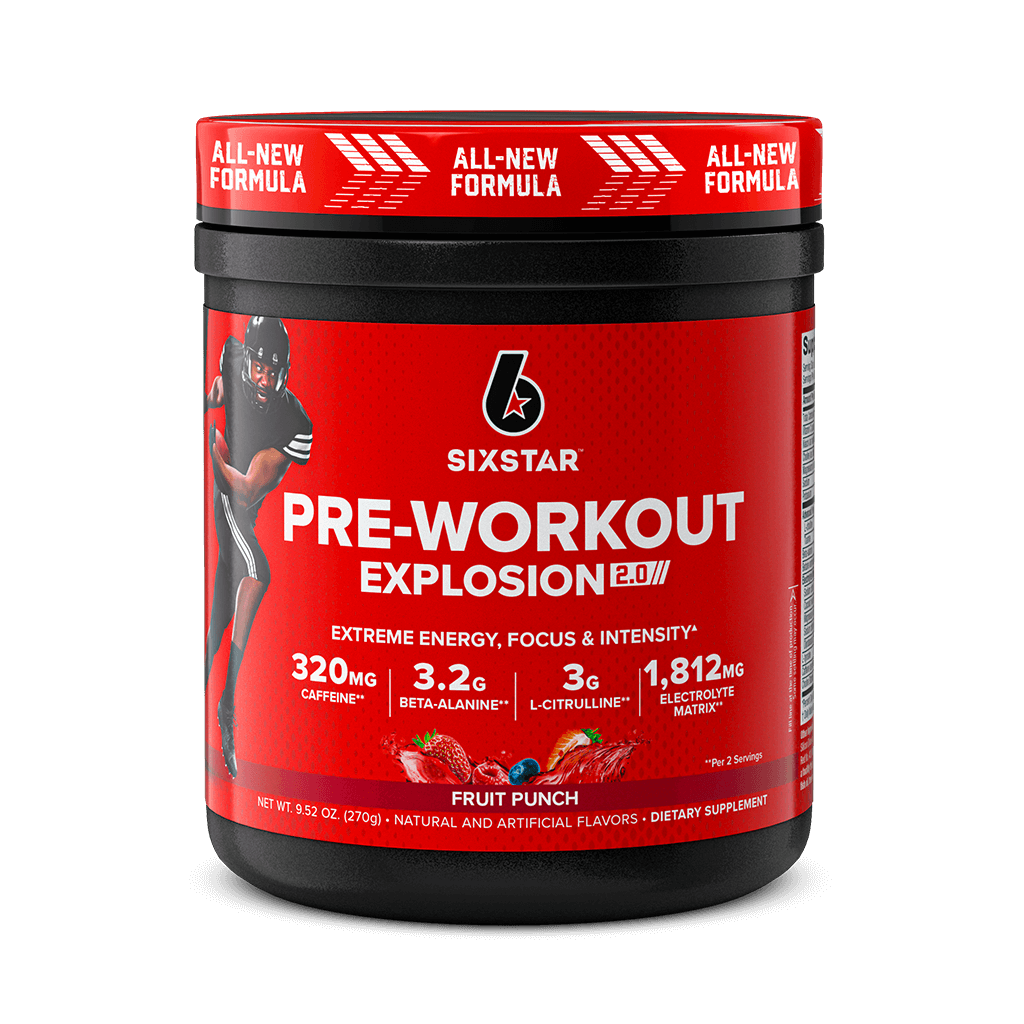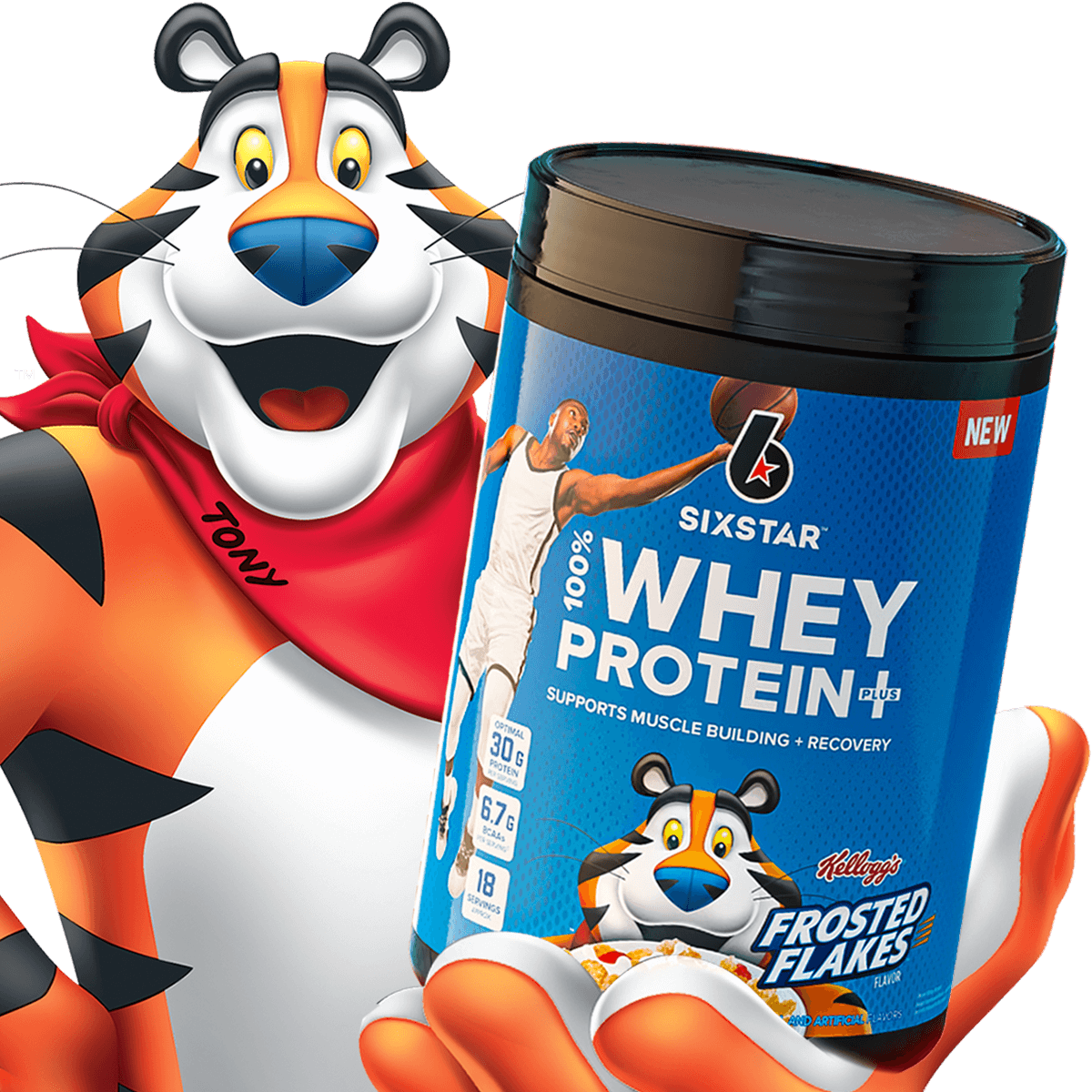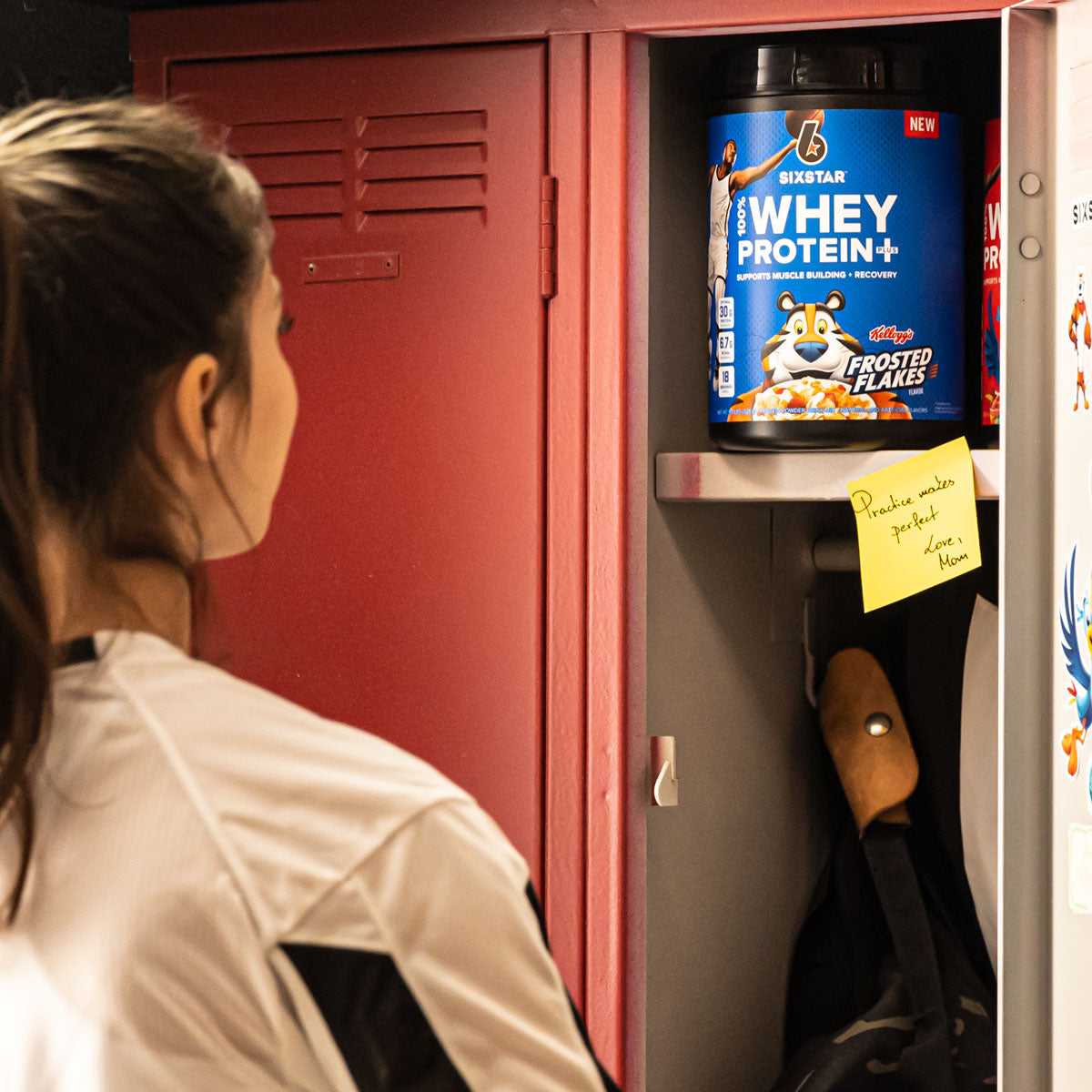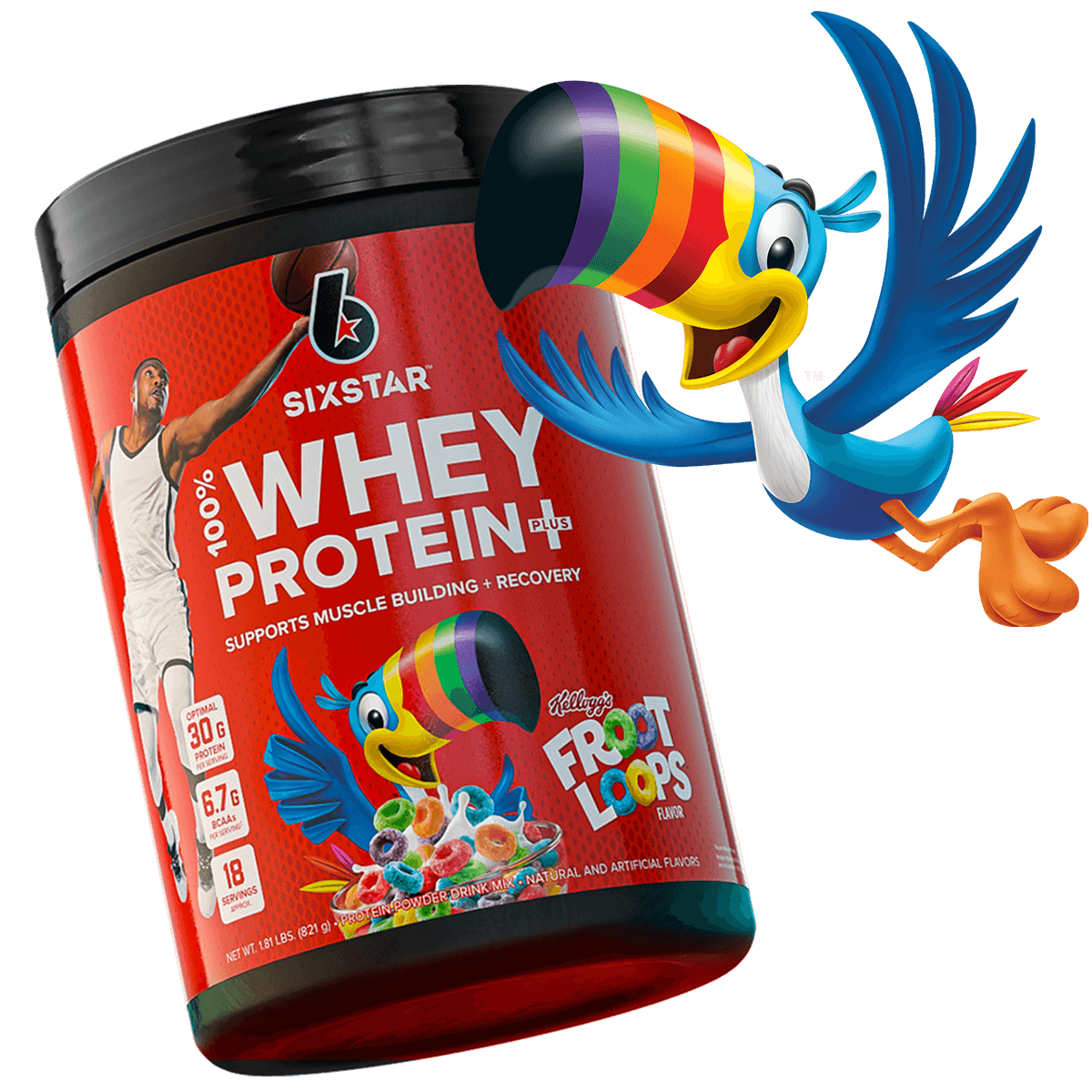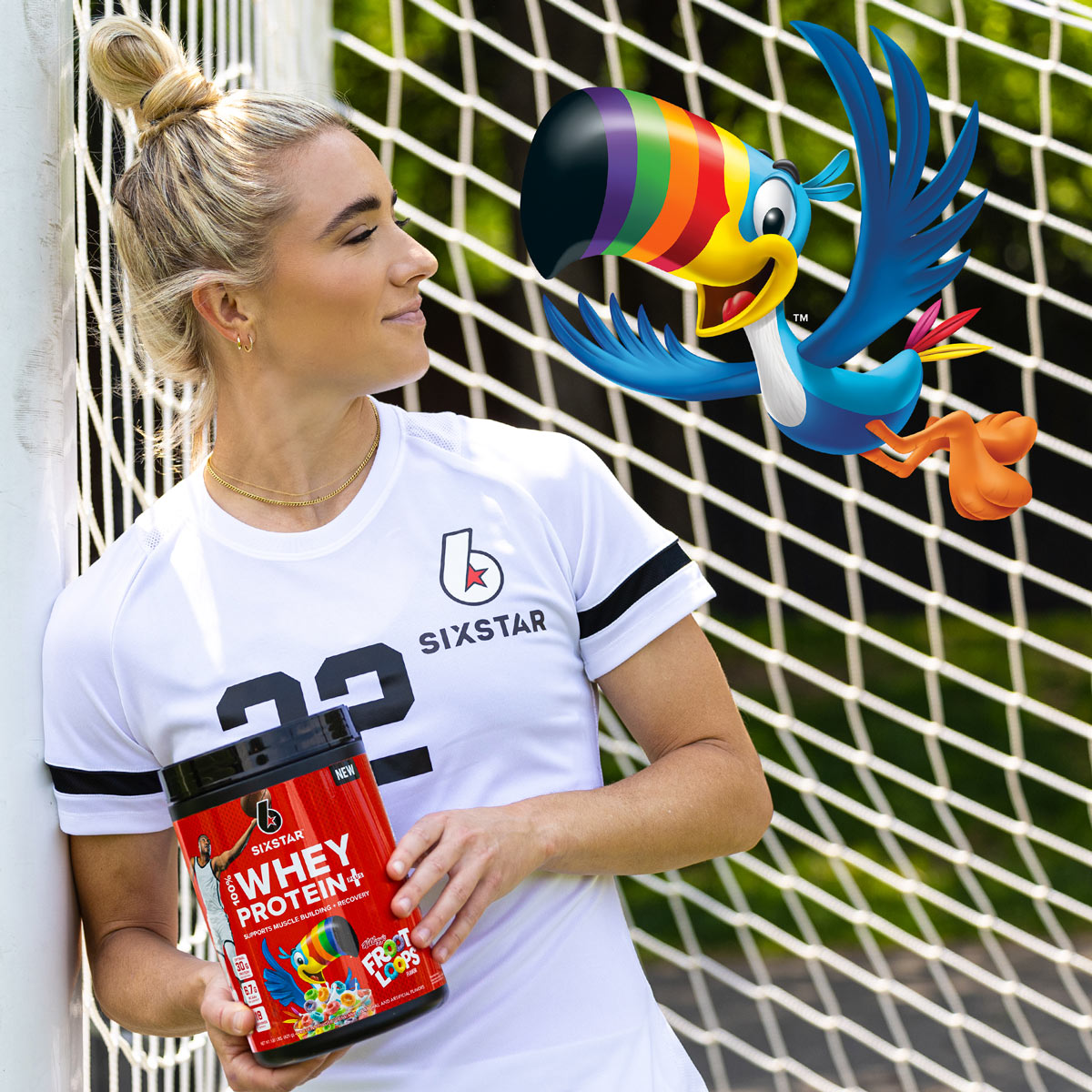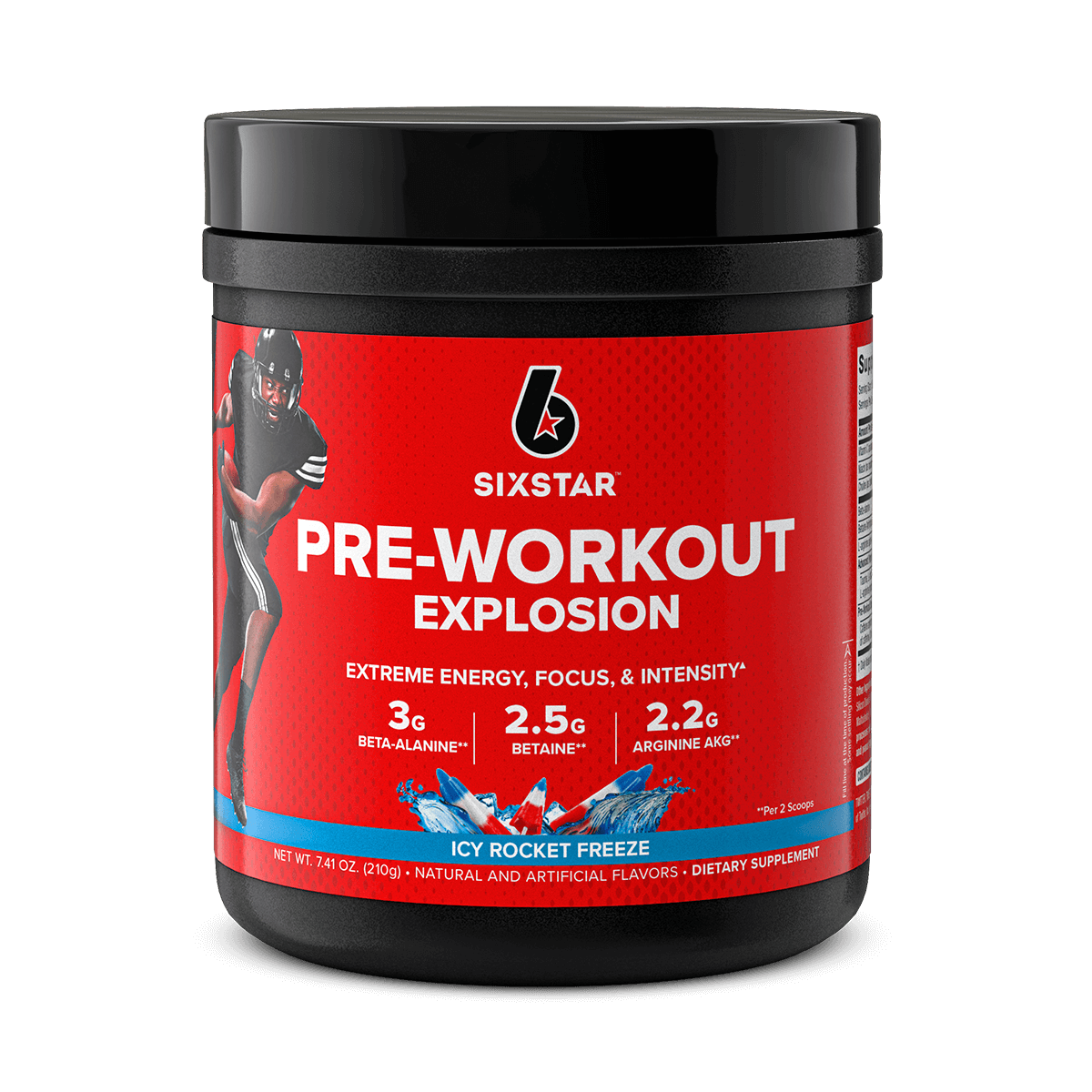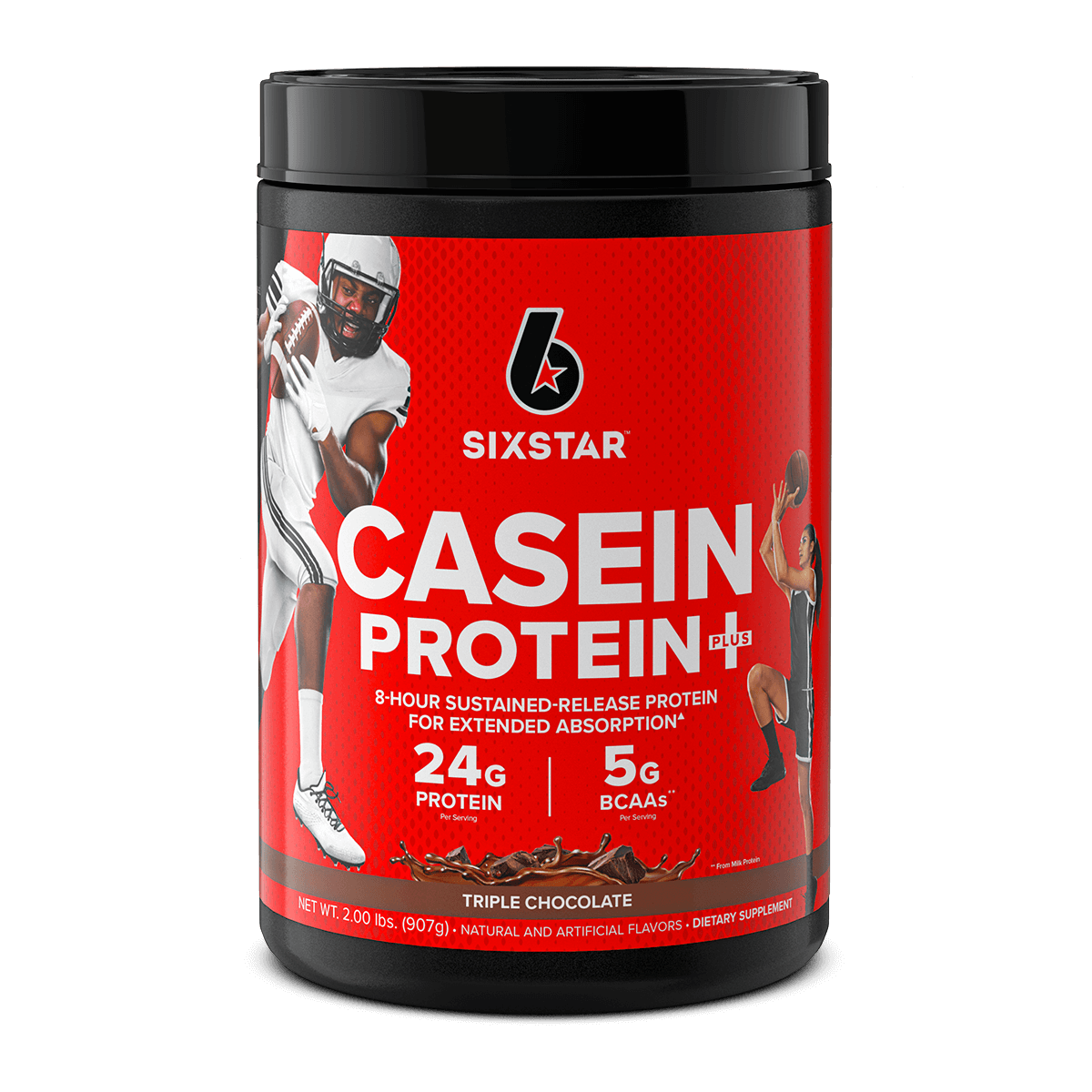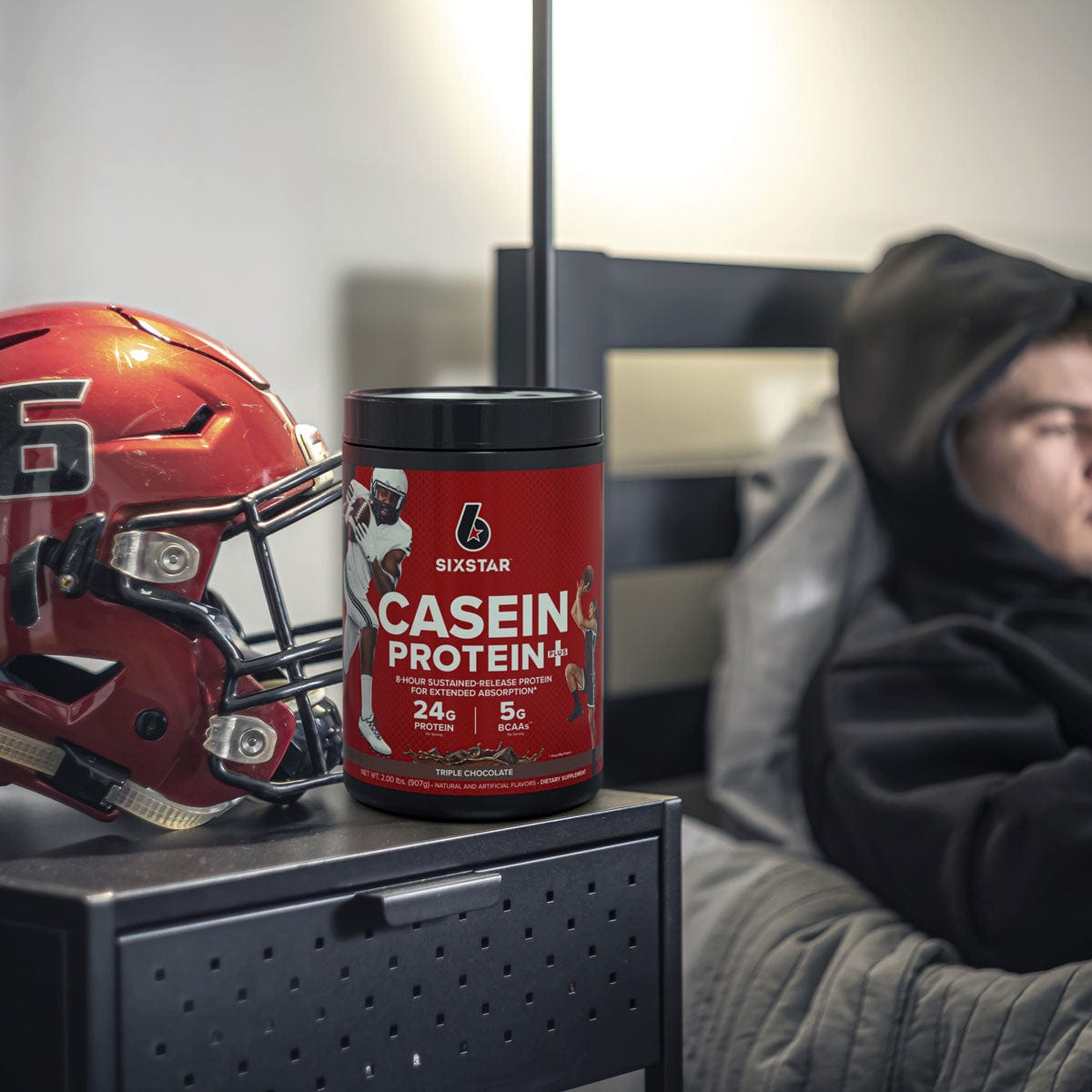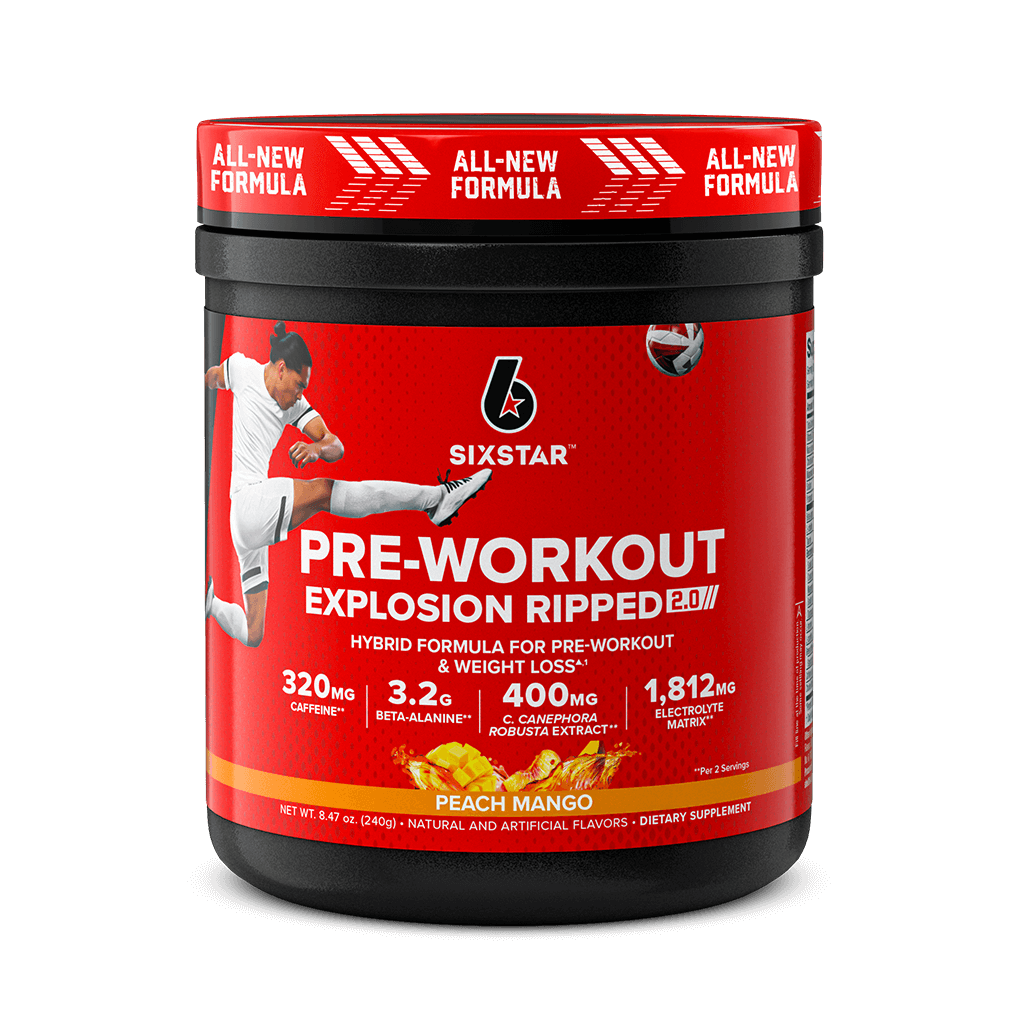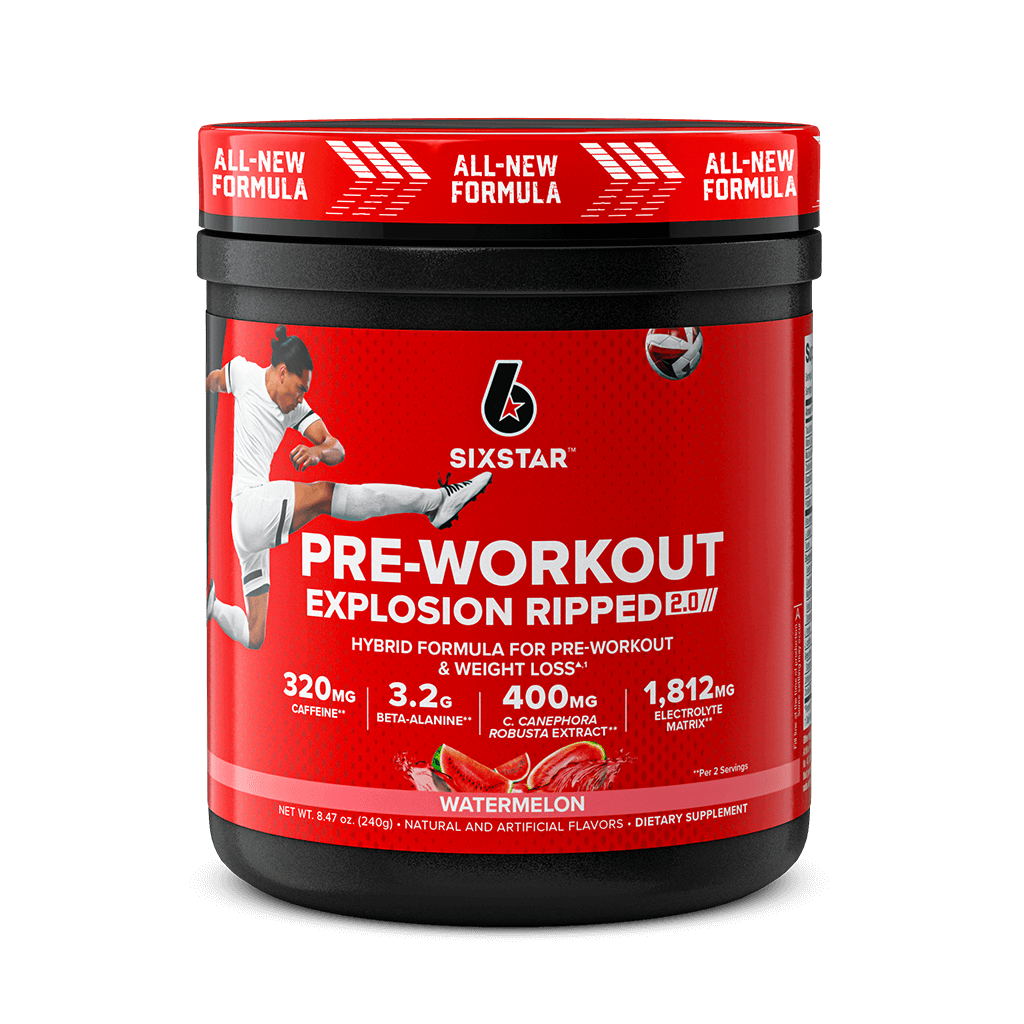Today, it's a battle of the supplements: BCAAs vs Creatine.
When it comes to supplements it can be tough to figure out which ones you should take to meet your fitness goals. Both BCAAs and Creatine are derived from amino acids and help achieve athletic performance.
There are two schools of thought regarding which is better for muscle building, BCAA or Creatine. BCAA is believed to be a better option as it provides the body with the amino acids necessary to build muscle, however, creatine, on the other hand, helps to increase energy levels and improve athletic performance.
So, which is the better option?
In this post, we will give you a rundown of two of these most popular fitness supplements to see which one ranks king (or maybe they both do).
Table of content
What are BCAA’s?
Amino acids are the building blocks for protein. Each protein molecule is made up of a collection of smaller substances, called amino acids. Branched-chain amino acids (commonly known as BCAA’s or BCAA) are a subset of three essential amino acids—leucine, isoleucine, and valine—that play an important role in exercise.(1)
There are a total of 20 amino acids however, 11 of them can be synthesized by the body. This leaves 9 that are considered essential and are required to be obtained from our diet. Research suggests that BCAAs can enhance resistance training adaptations by increasing muscle mass and fat burning capabilities, encouraging hormonal balance, reducing fatigue, mitigating the effects of Delayed onset muscle soreness (DOMS), and speeding up recovery.
BCAA are mainly involved in the following processes:
1. Muscle protein synthesis
Muscle Protein Synthesis (MPS) is your body's process of using protein to build and repair muscles following intense exercise. When we work our muscles, we create tiny tears in the muscle fibers. These tears require protein to rebuild and repair these fibers so that they become a little bit bigger and a little bit stronger the next time you replicate that activity. The breakdown of muscle fibers causes inflammation that often results in muscle soreness. BCAAs, especially leucine, play a significant role in stimulating MPS. They serve as a substrate to synthesize new muscle proteins and as a signal to initiate the rate-limiting translation initiation step of MPS.
Stimulation of MPS is accompanied by increased activity of intracellular signaling proteins regulating the translational activity of MPS. Specifically, the mTORC1 (mammalian target of rapamycin complex-1) signaling is stimulated by ingestion of essential amino acids following bouts of resistance exercise. So, more substrates should theoretically mean more muscle growth.(2)
It should be noted however that studies have also found we must include the other essential amino acids, not just BCAAs, to successfully build muscle mass. Without these, results are not as successful. Ensuring you are consuming adequate protein in your diet or supplementing it with a high-quality protein shake can help boost recovery and improve muscle soreness following intense activity. But more importantly, giving the body the compounds it needs will enhance muscle protein synthesis, and speed up the process of building lean muscle mass.
3. Reduce onset of fatigue
Many studies have been published on peripheral fatigue and several biochemical alterations as causes of fatigue, for example, depletion of muscle glycogen or phosphocreatine, accumulation of protons, and failure of neuromuscular transmission. During prolonged exercise of moderate intensity, a decrease in the blood glucose level due to depletion of the liver glycogen stores is one factor known to affect the central nervous system and cause fatigue. Another factor suggested to cause central fatigue during dynamic exercise is an increase in neurotransmitter release, particularly 5-hydroxytryptamine (5-HT) in the brain. Changes in the brain 5-HT level are involved in the control of mood, arousal and sleepiness and might therefore also play a role in fatigue during and after physical exercise. Increasing 5-HT (serotonin) levels in the brain is thought to be associated with central fatigue during exercise. Tryptophan is a precursor molecule in the synthesis of serotonin. As tryptophan uptake rises with exercise, serotonin synthesis also signals to the brain that the body is fatigued, thus lowering power output and strength. However, because larger amino acids like leucine, isoleucine, and valine compete with the same transport proteins as tryptophan to enter the brain, the larger the amino acid, the better chance of winning the spot. Consequently, when you increase concentrations of essential amino acids, you increase competition, less tryptophan enters the brain, and you delay onset of fatigue.(3)
4. Mitigate muscle soreness
Resistance exercise is a common mode of training and is considered an integral part of an athlete’s workout plan. Resistance exercises require both shortening and lengthening contractions of the muscles, it is well known that exercise biased by lengthening contractions are more powerful stimulus for neuromuscular adaptation compared to shortening contractions. Consequently, many athletes routinely incorporate this exercise modality to maximize the potential gains from lengthening contractions. However, lengthening contractions, particularly when high forces are generated, cause temporary exercise-induced muscle damage (EIMD) that can last for several days.
BCAAs are known to conserve tissue during periods of intense training by helping increase muscle protein synthesis and reduce muscle breakdown. Studies show that people taking BCAAs reported significantly less soreness 48-72 hours post-exercise. Glutamine, a conditional essential amino acid produced by the degradation of BCAAs is used as an energy source by lymphocytes and macrophages to fuel repair and recovery. Serum creatine kinase (CK) levels were lower in participants who consumed BCAAs; this may be attributed to the role of BCAAs in attenuating CK efflux improving recovery of muscle function and reducing residual muscle soreness.(4)
What Is Creatine?
Creatine is a nitrogenous organic acid essential for supplying energy to muscle cells throughout the body. There are two types of creatine: creatine monohydrate and creatine nitrate. One percent of the total volume of human blood is creatine, while 95 percent of creatine in the body can be found in skeletal muscle. Unlike the BCAAs, the precursor amino acids are non-essential, meaning both arginine and methionine can be produced in the body, as well as creatine. Creatine's main role is to support rapid energy production during short and intense bursts of physical activity. Creatine is widely used to enhance athletic performance by increasing intramuscular phosphocreatine (PCr) concentrations. More specifically, it plays a vital role in energy availability and the regeneration of ATP, your body's energy currency.
Creatine is involved in the following processes:
1. Increasing Athletic Performance
Creatine not only helps the athletes with better stamina for long intensive periods but also helps non- athletes boost the body’s creatine pool to enhance simple physical performance. Creatine has the potential to improve performance involving extreme and intense activity in short period, particularly during repeated bursts. On top of that creatine could boost the effects of resistance training, on body mass and strength.(5)
2. Energizing Muscle Cells
Adenosine triphosphate (ATP) is the main source of energy during high intense exercise. When your cells use ATP for energy it loses a high-energy phosphate and changes into Adenosine diphosphate (ADP). In this dynamic process, creatine increases the overall pool of phosphocreatine for recycling ADP to ATP. Creatine aids in supplying more energy for high intensity exercise in turn enhancing strength and power output.(6)
3. Helping with Weight Gain
Creatine can make you gain weight by water retention. Your muscles hold on to water making you feel bloated or puffed typically around your arms, legs, and stomach. You can gain about two to five pounds due to retention of water. However, creatine can cause some water weight gain, research has found that creatine can effectively supplement for endurance and strength, and consequently, your body may increase in muscle strength and size.(6)
4. Enhancing Cognitive Ability
While creatine’s influence on muscles is widely recognized, it has gaining prominence on impacting brain health and cognitive function. For the relentless energy demand of the brain, creatine acts as a supplier of quick and efficient energy for cognitive tasks. Studies suggest that creatine supplementation might enhance working memory, information processing speed, and overall cognitive performance, making it a potential ally for anyone looking to boost mental acuity.(7)
When to Include BCAAs?
Now that you can understand how BCAAs and creatine work in the body, it's time to talk about which one is better for you.
However, like every other supplement, BCAAs and creatine come with their own unique set of benefits.
The main difference between creatine and BCAA supplements is how they affect your athletic performance.
BCAA supplementation is ideal for people looking to:
Promote muscle repair after exercise.
Reduce muscle damage and soreness after exercise.
Support endurance during exercise with an alternative muscle fuel source.
When to include Creatine?
Creatine supplementation is ideal for people looking to build muscle. Athletes who are looking to increase absolute strength levels and looking to increase their power.
Creatine supplementation is ideal for people looking to:
Increase muscle mass.
Increase muscle strength.
Increase muscle power.
Increase ATP levels in the body.
Both BCAA supplements and creatine supplements have benefits for building muscle. The one you choose depends on the specifics of your goals. If your exercise focuses on endurance rather than intensity, BCAAs may fit your needs better. If your gym sessions focus on increasing power and intensity, creatine supplementation may be a better choice.
Sources of BCAAs
Many athletes include BCAA supplements as an addition to their nutrition regimen. BCAA are also included in various pre-workout or post-workout shakes and have become a go to for many gym goers.(8)
While you may get a good dose of BCAA’s in the form of supplements, here are some of the BCAA-rich foods to look out for:
Non-vegetarian options: Eggs, fish, turkey, beef, chicken.
Vegetarian options: Nuts, beans, lentils, chickpeas, quinoa, tofu, Milk, cheese, soy, and whey protein.
Sources of Creatine
Just like BCAAs, athletes can get creatine from supplements. Many athletes take creatine either before or after their workouts.(9)
To get up your creatine intake without — or in addition to — your supplements, here are some creatine rich foods:
- Herring, salmon, tuna.
- Beef, pork, lamb, chicken.
Over to You
Creatine and BCAAs are famous and highly sought-after supplements in the athletic arena. Both BCAAs and creatine have research-backed benefits when it comes to improving your body composition and exercise performance. They’re both at the top of their class in terms of getting more out of your workouts and hitting your goals faster.
It is important to consider your goals, diet, and specific exercise routine to help you pick the best supplement for a specific situation. Whichever supplement you choose — these are from the top tier — remember to train hard and recover properly.
REFERENCES:
- https://www.ncbi.nlm.nih.gov/pmc/articles/PMC5568273/
- https://pubmed.ncbi.nlm.nih.gov/21071597/
- https://www.sciencedirect.com/science/article/pii/S002231662208097X
- https://jissn.biomedcentral.com/articles/10.1186/1550-2783-9-20
- https://www.ncbi.nlm.nih.gov/pmc/articles/PMC8228369/
- https://www.ncbi.nlm.nih.gov/pmc/articles/PMC2048496/
- https://www.mdpi.com/2072-6643/14/5/921

